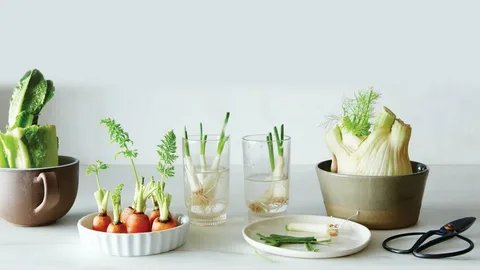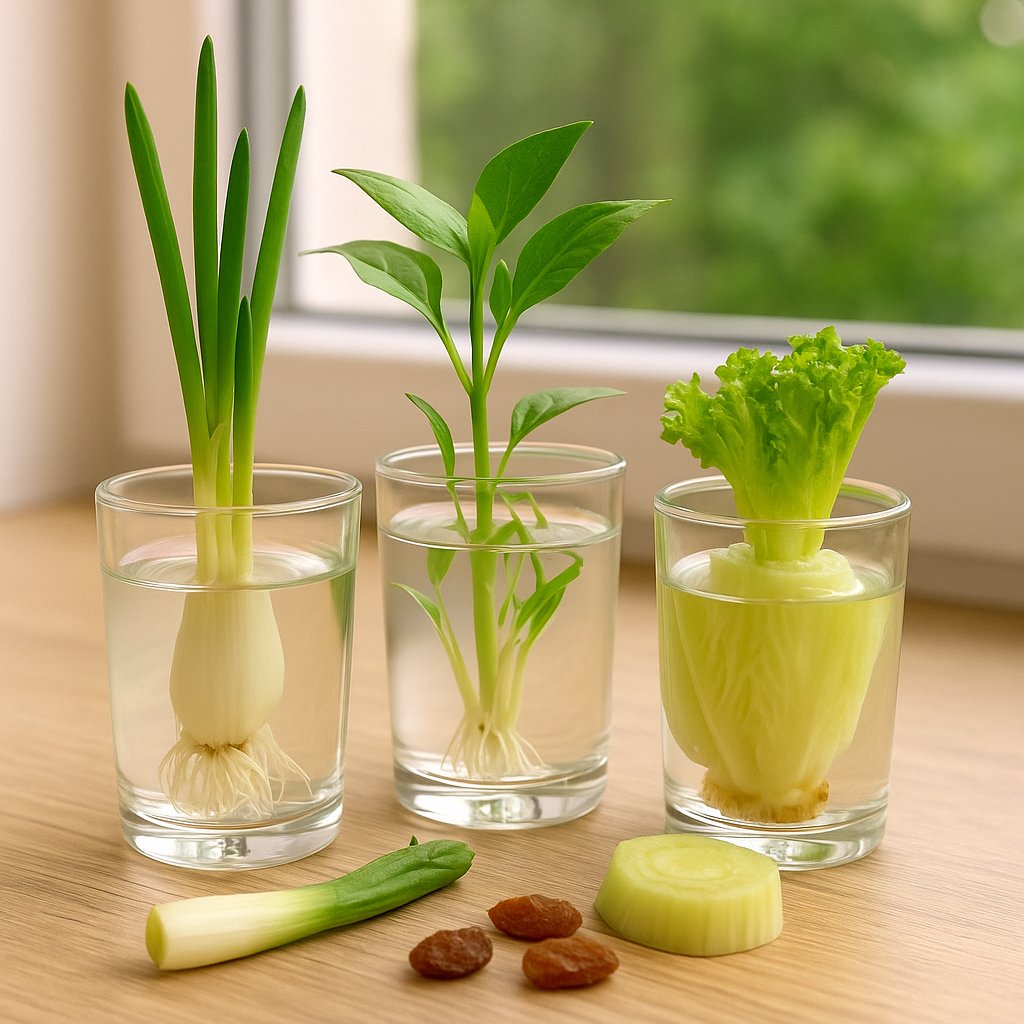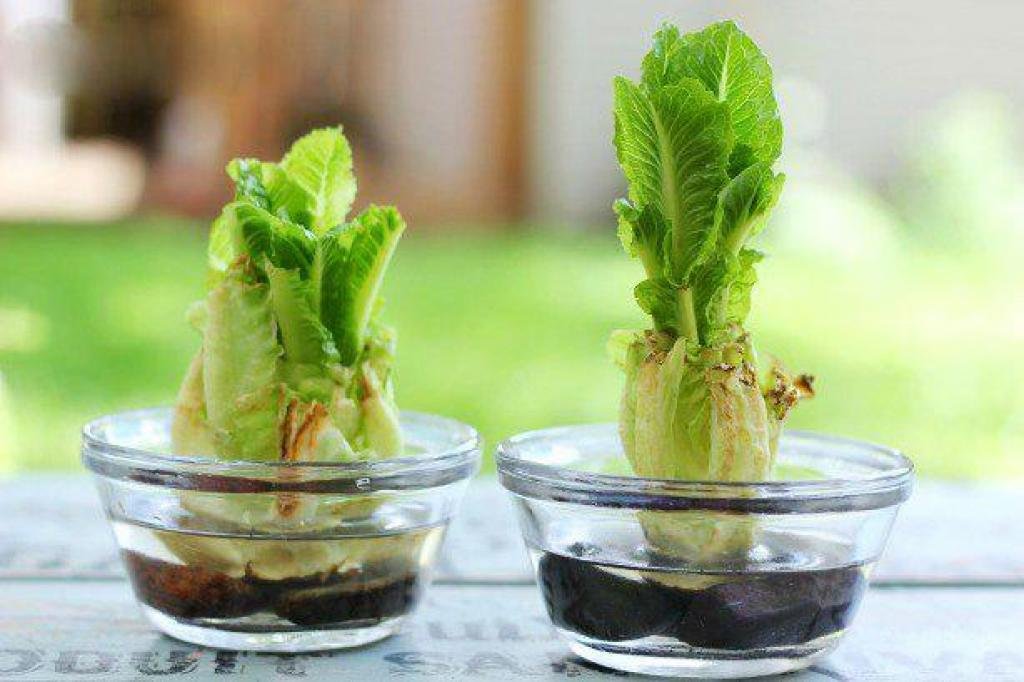Many people throw away vegetable stems, roots, or leftover cuttings without realizing that these scraps can actually grow into brand-new plants. By regrowing vegetables at home, you can save money, reduce waste, and enjoy a constant supply of fresh, chemical-free produce. Best of all, it’s incredibly simple — no garden required

—
### Why Regrowing Vegetables at Home Is a Game-Changer
– **Saves money:** Reduce grocery costs by reusing what you already have.
– **Eco-friendly:** Cuts down on food waste and promotes sustainability.
– **Always fresh:** Grow vegetables without pesticides right in your kitchen.
– **Fun for the family:** A great hands-on project for kids and adults alike.
—
### Vegetables You Can Easily Regrow from Stems

1. **Green onions** – Place the white root ends in a glass of water; new shoots will appear in days.
2. **Lettuce & cabbage** – Put the stem base in shallow water and watch new leaves sprout.
3. **Celery** – Regrow crisp stalks by placing the base in water, then transplanting into soil.
4. **Bok choy** – Similar to lettuce, it grows quickly in shallow water with good sunlight.
5. **Carrot tops** – Regrow leafy greens from the top ends for soups and garnishes.
—
### Step-by-Step Guide to Regrowing Vegetables

**What you need:**
– Fresh vegetable stems or roots
– A shallow bowl or jar
– Clean water
– Sunlight
**Instructions:**
1. Trim the stem or root base from your vegetables.
2. Place the base in a shallow container with enough water to cover the roots.
3. Put it in a sunny windowsill or balcony.
4. Change the water every 1–2 days to prevent bacteria growth.
5. Once roots and shoots develop, transplant into soil for continuous growth.
—
### Tips for Success
– Use filtered water for better results.
– Avoid overcrowding stems in the same container.
– Make sure the plants get at least 4–6 hours of sunlight daily.
—
### Final Thoughts
Regrowing vegetables from stems is an easy, cost-effective, and eco-friendly way to keep your kitchen stocked with fresh produce. With just a little water, sunlight, and patience, you can turn scraps into a thriving mini garden right at home. Not only will you save money, but you’ll also enjoy the satisfaction of harvesting food you grew yourself.
